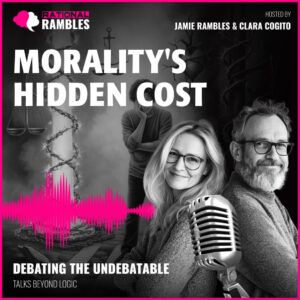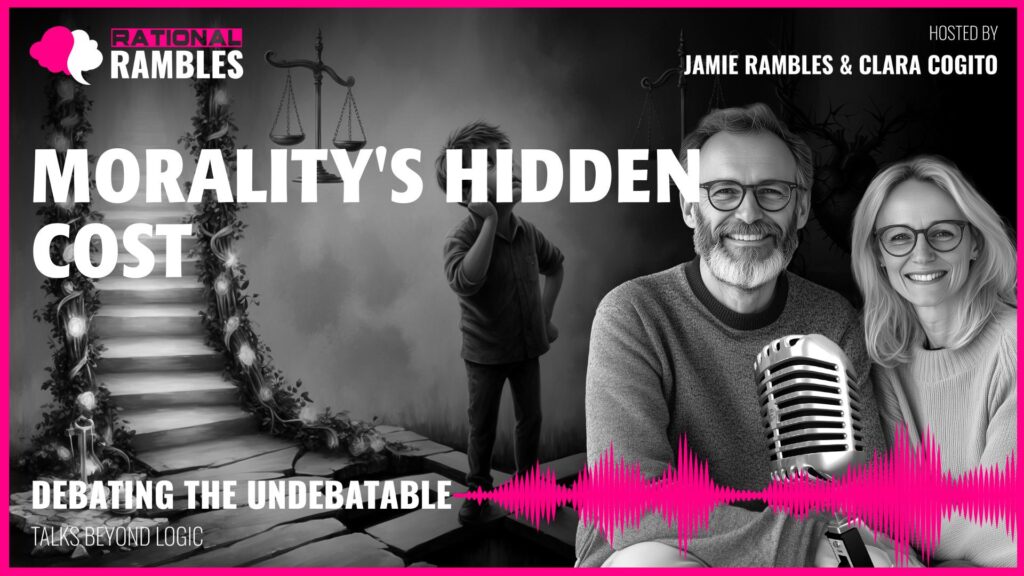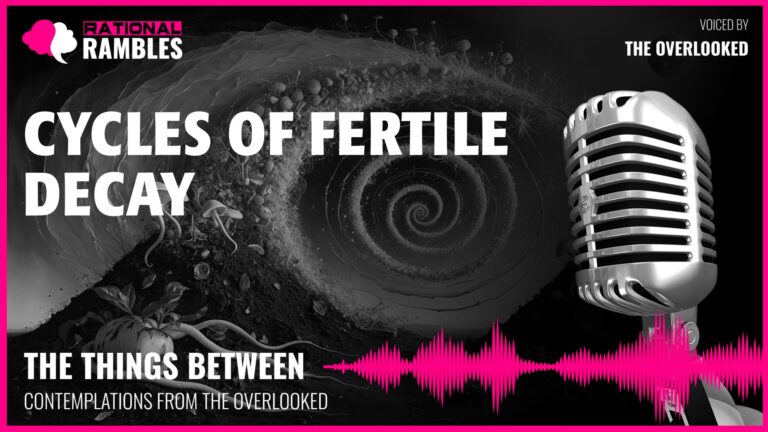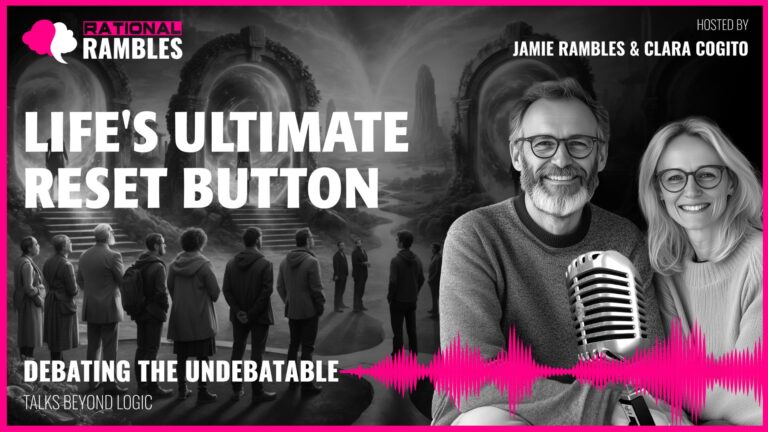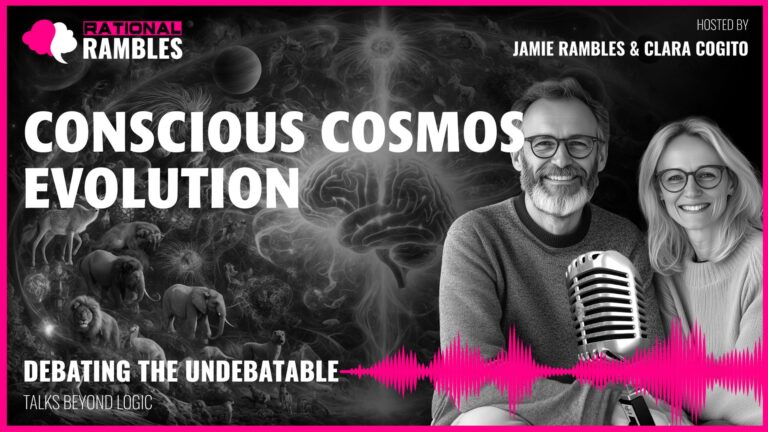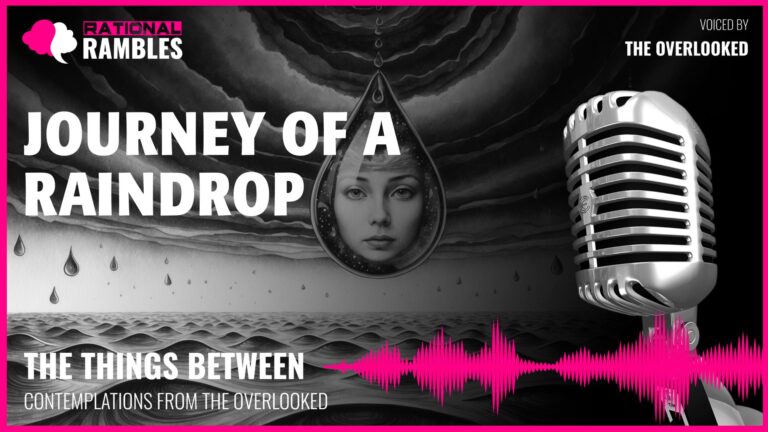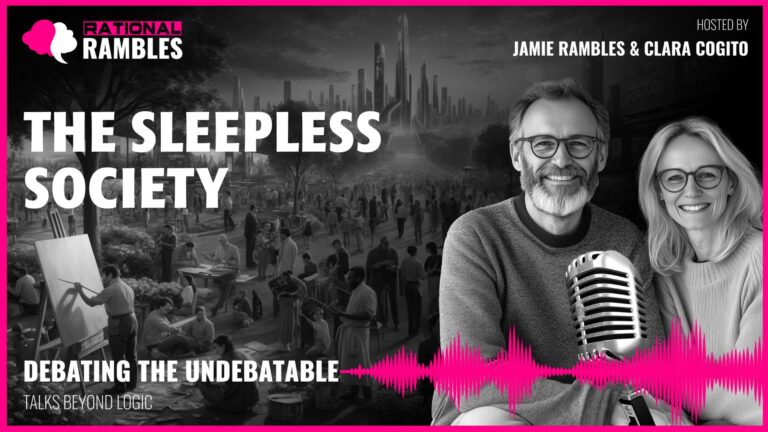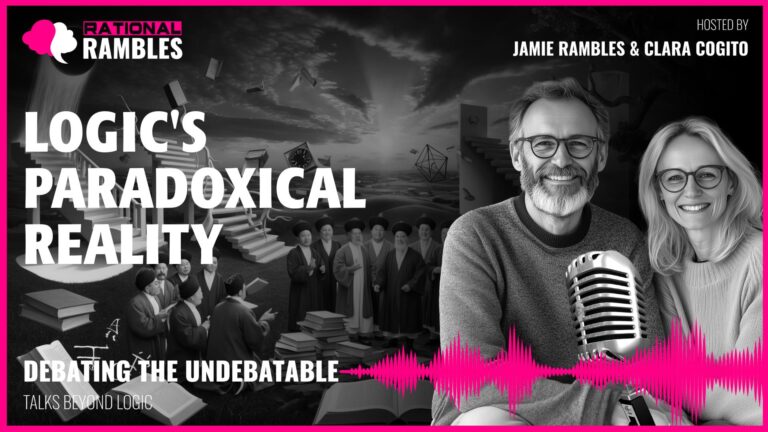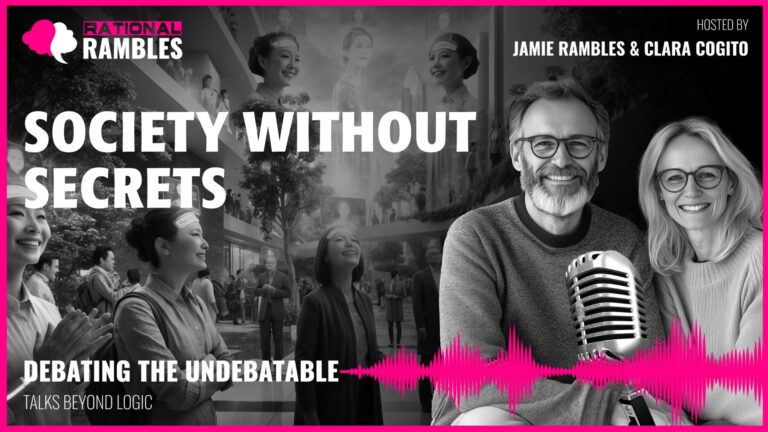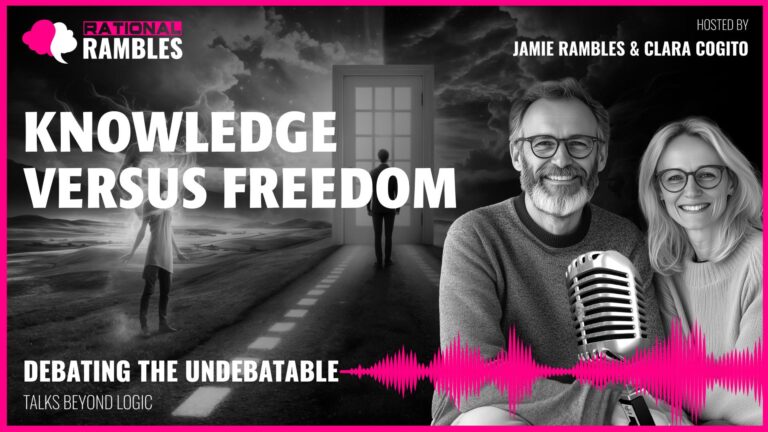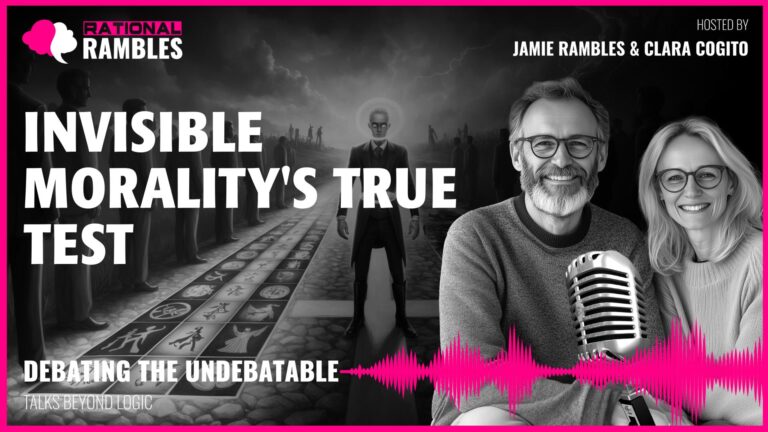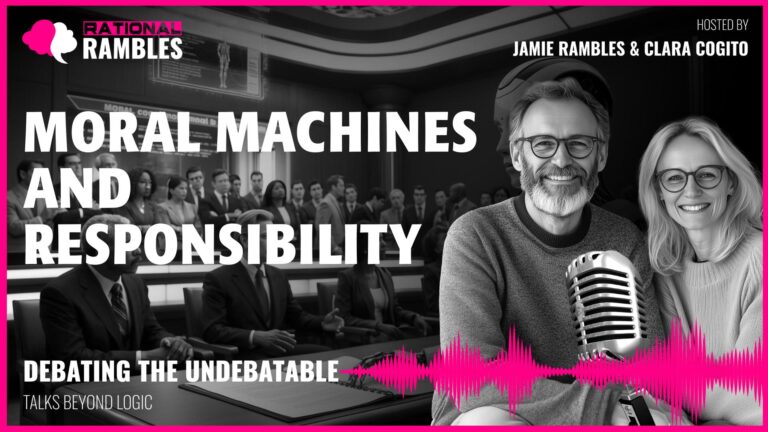Morality’s Hidden Cost: The Personal Price of Ethical Action
Introduction: The Moral Dilemma of Self-Sacrifice
When is it justifiable to act morally if doing so brings about personal suffering or disadvantage? This profound question strikes at the heart of ethical philosophy and human psychology, revealing tensions that have challenged thinkers across centuries. It’s easy to make moral choices when they align with our self-interest—when being honest, kind, or fair costs us little or benefits us directly. But the true test of moral commitment arises when ethical action demands real sacrifice, when doing the right thing means accepting personal loss, discomfort, or even harm.
Consider a woman in difficult financial circumstances who finds a wallet filled with cash. Despite her own children potentially going hungry that night, she returns it intact to its owner. Was this morally right for her to do? The immediate calculus seems troubling—her children’s well-being weighed against an abstract moral principle. Yet most moral frameworks would praise her action while perhaps remaining uncomfortable with its consequences.
This tension between moral action and personal welfare raises fundamental questions about the nature of morality itself. Is a moral system that regularly demands significant personal sacrifice sustainable or even desirable? Must we accept that being moral sometimes requires being miserable? Or is there a way to reconcile ethical demands with human flourishing? These questions touch on philosophical traditions from Kant to Aristotle, psychological research on moral decision-making and well-being, and lived human experience across diverse contexts.
What follows is an exploration of morality’s hidden cost—the personal price of ethical action. We will examine this complex terrain through multiple lenses, considering not just whether moral sacrifice is justified, but how such sacrifice functions within individual lives and communities, how it relates to human development and flourishing, and how we might cultivate moral resilience that sustains ethical commitment without destroying the moral agent.
Philosophical Perspectives on Moral Sacrifice
Throughout the history of philosophy, thinkers have grappled with the tension between moral demands and personal welfare, offering diverse perspectives on when sacrifice is justified and how it should be understood within a well-lived human life.
Kant and the Categorical Imperative
Immanuel Kant provides perhaps the most uncompromising philosophical justification for moral sacrifice. His deontological ethics centers on the categorical imperative—the principle that one should act only according to maxims that could become universal law. For Kant, the moral worth of an action comes not from its consequences but from being done from duty, regardless of personal cost or benefit.
On Kant’s view, the woman who returns the wallet acts morally precisely because she does so from duty rather than self-interest. The fact that she might suffer as a result is irrelevant to the moral evaluation of her action. Indeed, Kant famously argued that an action done from inclination rather than duty lacks moral worth—suggesting that sacrifice might actually be a marker of true moral action.
While Kant’s perspective provides a clear justification for moral actions that cause personal suffering, it creates significant tension with human psychology. As embodied, vulnerable beings with needs and attachments, can we sustainably act from duty alone? The woman’s resignation upon returning the wallet suggests an internal conflict that raises questions about the psychological realism of Kantian ethics, especially when applied to repeated moral demands rather than isolated choices.
Bernard Williams and the Critique of Impartiality
Philosopher Bernard Williams offered a powerful critique of moral systems that demand impartiality to the point of alienating individuals from their personal projects and relationships. Williams argued that moral frameworks like utilitarianism and Kantianism ask us to adopt a perspective that is, in essence, “from nowhere”—detached from our particular human lives and deepest commitments.
According to Williams, this demand for impartiality threatens to undermine the very integrity of the moral agent. If morality regularly requires sacrificing the projects and relationships that give our lives meaning, it creates a fundamental alienation from our own existence. Williams suggests that there are limits to what morality can reasonably demand, and that personal commitments legitimately constrain moral obligations.
Applied to our wallet example, Williams might argue that the woman’s obligation to her children’s welfare represents a legitimate constraint on her moral duty to return the wallet intact. The fact that she returned it anyway might represent a moral choice, but not one that could be universally demanded without destroying the very fabric of human life and meaning.
Aristotle and Virtue Ethics
Aristotle’s virtue ethics offers a different approach to moral sacrifice, one grounded in the concept of eudaimonia or human flourishing. For Aristotle, morality isn’t about following abstract rules but developing a character that enables the complete realization of human potential. Virtues represent excellences of character—the golden mean between excess and deficiency in various domains of human activity.
From an Aristotelian perspective, extreme self-sacrifice that destroys one’s wellbeing wouldn’t be considered virtuous at all. True virtue requires practical wisdom (phronesis) that discerns the appropriate action in particular circumstances, balancing various goods and considerations. Morality isn’t opposed to self-interest properly understood, but is integral to the flourishing life.
In our example, an Aristotelian might question whether returning the wallet at severe cost to one’s children represents true virtue or an imbalanced fixation on honesty at the expense of other important virtues like appropriate care for dependents. The virtuous response might involve finding a middle path—perhaps returning the wallet but explaining the circumstance and seeking help, or taking only what is absolutely needed while returning the rest.
Utilitarianism and Effective Altruism
Utilitarian ethics evaluates actions based on their consequences, typically focusing on maximizing overall happiness or well-being. Classical utilitarianism might seem to justify virtually any personal sacrifice if it produces greater aggregate benefit. However, more sophisticated utilitarian approaches recognize that accounting for one’s own wellbeing isn’t selfishness but a necessary calculation in maximizing overall good.
Contemporary effective altruism, influenced by utilitarian thinking, emphasizes sustainability in doing good. If burning yourself out means helping fewer people over time, then moderate self-care becomes morally required, not merely permitted. This approach recognizes that moral heroics that can’t be sustained may actually produce less good in the long run than more moderate but consistent moral action.
However, this pragmatic approach raises concerns about rationalization. It becomes easy to justify inaction with claims about preserving resources for future good—good that may never materialize. The utilitarian must honestly assess whether deferring moral action truly serves greater good or merely provides a convenient excuse for moral minimalism.
Nietzsche’s Psychological Insight
Friedrich Nietzsche brought penetrating psychological insight to moral philosophy, suggesting that morality often functions as self-deception. He was deeply suspicious of moral systems that claim universality but actually serve hidden psychological needs—whether for control, self-aggrandizement, or avoidance of difficult truths.
Following Nietzsche’s approach, we might question whether extreme self-sacrifice and its opposite, moral minimalism, both serve as psychological evasions. Dramatic self-sacrifice might allow us to feel morally superior while avoiding the complex work of creating sustainable good, while minimal moral effort lets us avoid moral demands entirely. Both extremes can represent flights from the difficult balance of genuine moral engagement.
This perspective invites us to examine moral actions not just for their stated justifications but for their psychological functions. Does the personal suffering that accompanies a moral choice serve a genuine moral purpose, or does it fulfill other psychological needs—perhaps for moral status, self-punishment, or escape from more complex moral responsibilities?
Existentialism and Authentic Moral Choice
Existentialist philosophers like Jean-Paul Sartre and Simone de Beauvoir emphasized that what gives moral sacrifice its value isn’t adherence to pre-existing moral rules but the authentic choice to create meaning through our actions. In choosing to sacrifice for something we genuinely value, we’re enacting our freedom and shaping who we become.
This suggests another dimension to our question: perhaps moral action that involves personal suffering is most justifiable when it represents an authentic expression of our deepest values, rather than compliance with external moral demands we haven’t truly made our own. The moral agent who sacrifices based on values they have authentically chosen experiences that sacrifice differently from one acting from external obligation or social expectation.
Existentialism thus shifts our focus from abstract justifications to the subjective meaning of moral choice. The key question becomes not just whether a moral action objectively justifies suffering, but whether that suffering is integrated into a meaningful narrative that authentically expresses the agent’s values and commitments.
Psychological Perspectives on Moral Sacrifice
Psychological research offers complementary insights into how humans experience and sustain moral action that involves personal cost, illuminating both the challenges and possibilities of ethical sacrifice.
Altruism vs. Self-Preservation
From a psychological perspective, moral sacrifice immediately confronts us with the tension between altruism and self-preservation. Our brains are wired to avoid pain and seek pleasure—neural circuits that developed over evolutionary time to promote survival and reproduction. Yet humans also possess remarkable capacities for empathy and moral reasoning that sometimes motivate us to act against immediate self-interest.
Research on altruistic behavior reveals this tension playing out in real-time decision-making. When faced with opportunities to help others at personal cost, people show measurable physiological signs of conflict—increased heart rate, elevated stress hormones, and activation of both reward and aversion centers in the brain. This physiological conflict becomes especially pronounced when basic needs aren’t met, explaining why moral choices carry a heavier psychological burden in resource-scarce environments.
Interestingly, studies show that individuals differ significantly in how they experience this conflict. Some people appear to derive genuine pleasure from helping others (experiencing what researchers call a “helper’s high”), while others experience primarily the negative aspects of sacrifice. These differences stem from both innate temperament and developmental experiences that shape how the brain processes the rewards and costs of moral action.
Moral Injury and Internal Conflict
The concept of moral injury, initially developed to understand trauma in military contexts, offers insight into the psychological harm that can result from moral choices. Moral injury occurs when a person experiences psychological damage from actions that transgress deeply held moral beliefs. Importantly, this injury can result both from violating one’s moral code and from adhering to it when doing so causes harm to oneself or loved ones.
This bidirectional nature of moral injury helps explain the profound discomfort many people feel when facing choices between moral principles and personal welfare or the welfare of loved ones. The woman returning the wallet might experience moral injury either way—guilt if she keeps the money, or painful awareness of her children’s increased suffering if she returns it. This internal conflict can manifest as depression, anxiety, shame, or a sense of meaninglessness.
Understanding moral injury highlights that moral choices involving personal sacrifice aren’t merely intellectual considerations but embodied experiences that can leave lasting psychological impacts. This perspective raises important questions about the sustainability of moral systems that regularly generate such conflicts without providing resources for integration and healing.
Self-Deception and Motivated Reasoning
Psychological research reveals humans’ remarkable capacity for self-deception and motivated reasoning when facing moral demands. When presented with opportunities to help others at personal cost, people who decline often generate complex moral justifications afterward. Studies show that these justifications aren’t necessarily conscious deception but psychological defense mechanisms protecting self-image.
For example, experimental participants who decline to donate money to an effective charity often subsequently downgrade their evaluation of that charity’s effectiveness. This retroactive reasoning helps maintain their positive self-concept despite not taking the moral action. Similarly, people readily accept moral principles in the abstract but find ways to exempt their particular situation when applying those principles would be costly.
This tendency toward self-deception complicates our evaluation of when moral sacrifice is justified. It suggests that both extreme self-sacrifice and its opposite—moral minimalism—can involve forms of self-deception. The person who sacrifices everything might be avoiding complex truths about sustainable moral engagement, while the person who does the minimum might be evading legitimate moral demands through rationalization.
Internalized vs. Externalized Motivation
Research on motivation offers important insight into how differently people experience the same moral actions. Studies distinguish between externalized motivation (acting from external pressure or obligation) and internalized motivation (acting from deeply held personal values). This distinction proves crucial for understanding sustainable moral sacrifice.
Consider two parents who both work extra hours to support their children’s education. One experiences this as a meaningful expression of their values and love, while the other feels trapped by social expectations of what “good parents” must do. Despite identical behavior, their psychological experience differs dramatically. The first parent experiences challenge but also fulfillment, while the second experiences primarily burden and resentment.
This research suggests that moral actions involving personal suffering are more sustainable when they stem from internalized values rather than external obligation. The internalization process—through which initially external moral demands become integrated into one’s sense of self and values—appears crucial for reconciling moral action with psychological wellbeing in the long term.
Post-Traumatic Growth and Meaning-Making
Research on post-traumatic growth reveals how suffering, including sacrifices made for moral reasons, can contribute to psychological development under certain conditions. Studies show that people who face significant challenges sometimes experience profound positive transformation, including deeper relationships, greater appreciation for life, enhanced personal strength, spiritual development, and new possibilities.
This transformation doesn’t occur automatically but depends on meaning-making processes that integrate suffering into a coherent narrative. When people can understand their sacrifice as serving a purpose they deeply value, they often experience growth rather than simply trauma. This meaning-making process appears to be both individual and social—shaped by personal reflection and by cultural frameworks that help interpret suffering.
This research suggests that when evaluating whether moral sacrifice is justified, we should consider not just immediate outcomes but potential for transformation. Suffering that contributes to moral growth and enhanced capacity for good in the long term might be justified in ways that suffering without such potential is not.
Moral Exemplars and Sustained Commitment
Studies of moral exemplars—individuals recognized for extraordinary ethical commitment over decades—provide insight into how people sustain moral action despite its costs. Research reveals several common characteristics among these individuals, including:
- Integration of morality with identity—they don’t experience moral action as separate from self-interest but as expression of who they are
- Capacity to find joy and meaning in moral action, even when difficult
- Strong social support and embeddedness in communities that share their values
- Ability to balance immediate moral demands with sustainable engagement
- Skills for processing and integrating difficult emotional experiences
Notably, these exemplars don’t report absence of struggle or sacrifice but describe a different relationship to that struggle. They experience moral challenges as opportunities for growth and connection rather than as burdensome impositions. This suggests that sustainable moral sacrifice depends not just on the nature of what is sacrificed but on the psychological resources and meaning frameworks the moral agent brings to that sacrifice.
The Ethics of Care and Feminist Perspectives
Feminist ethics, particularly the ethics of care tradition, offers vital perspectives on moral sacrifice that challenge traditional philosophical frameworks and align with psychological research on human development and relational wellbeing.
Challenging Abstract Individualism
The ethics of care tradition, developed by philosophers like Nel Noddings, Virginia Held, and Eva Feder Kittay, challenges the abstract individualism underlying many traditional ethical theories. It recognizes that morality happens within webs of relationships and acknowledges that humans are fundamentally interdependent rather than autonomous rational agents.
This perspective transforms how we understand moral sacrifice. Rather than seeing moral dilemmas as conflicts between abstract principles and individual self-interest, care ethics reveals them as complex navigations of various care responsibilities that cannot all be perfectly fulfilled. The woman returning the wallet isn’t simply choosing between honesty and self-interest but navigating competing responsibilities to herself, her children, the wallet’s owner, and broader social norms.
Care ethics thus complicates the very framing of our question about justified moral suffering by challenging the sharp separation between self and other that makes sacrifice appear as pure cost to self for benefit of other. It suggests that both adequate self-care and care for others are necessary elements of moral life, not opposing values to be balanced.
Tragic Moral Choice
Philosopher Paul Ricoeur’s concept of “tragic moral choice” resonates strongly with care ethics perspectives. This concept recognizes situations where any decision will involve some moral cost or failure—where perfect fulfillment of all moral obligations is simply impossible. In such situations, wisdom consists not in finding the mythical perfect solution but in acknowledging the inevitable moral cost and responding with appropriate gravity and compassion.
This framework helps us understand why certain moral choices involving personal suffering feel so troubling even when we believe the right choice was made. The discomfort doesn’t necessarily indicate moral error but appropriate recognition of the genuine moral cost involved. Acknowledging this tragic dimension of moral life protects against both cynical moral minimalism and naive moral absolutism that denies real complexity.
Care ethics particularly highlights how social arrangements often create these tragic choices unnecessarily—for instance, when economic systems force parents to choose between providing materially for their children and being present for them emotionally. This suggests that justified moral sacrifice must be evaluated not just at the individual level but also in terms of the systems that make such sacrifice necessary.
Moral Distress and Systemic Failures
The concept of “moral distress,” developed initially in nursing ethics, describes the psychological harm that occurs when people know the right action but are constrained from taking it by institutional factors. This concept helps explain why moral sacrifice can feel particularly burdensome in certain contexts—when the sacrifice seems unnecessary or results from systemic failures rather than genuine moral necessity.
Consider healthcare workers during the COVID-19 pandemic who worked to the point of burnout and breakdown. While often framed as heroic individual sacrifice, this situation might better be understood as systemic moral failure masked as individual moral heroism. The real moral failure wasn’t in healthcare workers who couldn’t sustain impossible burdens, but in systems that placed them in no-win scenarios, then celebrated their “sacrifices” rather than addressing structural problems.
This perspective suggests important distinctions between different kinds of moral sacrifice:
- Sacrifice necessitated by inherent limitations of the human condition
- Sacrifice made necessary by social arrangements that could be otherwise
- Sacrifice that becomes necessary only because of earlier moral failures or inadequate preparation
These distinctions matter for evaluating when moral sacrifice is justified. Sacrifice necessitated by unchangeable features of reality differs morally from sacrifice that serves mainly to maintain unjust or dysfunctional systems. The latter may call not for individual sacrifice but for systemic change that would make such sacrifice unnecessary.
Developmental Messages About Self-Sacrifice
Care ethics and feminist perspectives highlight how gendered socialization shapes attitudes toward moral sacrifice. Research shows that girls are often raised with stronger messages about self-sacrifice being the highest virtue, while boys receive more mixed messages that include self-assertion as a positive value. These differential developmental messages create lasting patterns in how adults approach moral demands that involve personal cost.
The impact extends beyond gender to other aspects of identity and cultural background. Different cultural traditions transmit varied messages about the value and meaning of sacrifice, appropriate limits, and how sacrifice relates to personal identity and community membership. These developmental and cultural factors profoundly influence whether individuals experience moral sacrifice as meaningful contribution or exploitative demand.
This developmental perspective suggests that evaluating justified moral sacrifice requires attention not just to the objective features of the situation but to the subjective meaning of sacrifice shaped by one’s developmental history. It also raises important questions about moral education—what messages about sacrifice allow children to develop into adults capable of genuine moral commitment without harmful self-abnegation or resentful withdrawal.
Toward Sustainable Moral Action
Having examined multiple perspectives on moral sacrifice, we can now explore how ethical commitment might be sustained without destroying the moral agent—how morality and human flourishing might be integrated rather than opposed.
The Integration of Morality and Identity
One key insight emerging from both philosophical traditions and psychological research is the importance of integrating moral commitment with personal identity. When moral action is experienced as external imposition conflicting with self-interest, it creates psychological tension that proves difficult to sustain. But when morality becomes integrated with one’s sense of self, the conflict diminishes or transforms.
Philosopher Derek Parfit’s work on personal identity offers a philosophical framework for understanding this integration. As our conception of self becomes less bounded and separate, the perceived conflict between self-interest and morality diminishes. Not because we’ve become self-sacrificing in the conventional sense, but because the very framework of sacrifice versus self-interest no longer captures our experience.
Research on self-transcendent experiences supports this philosophical insight. Studies show that experiences where the boundaries of self temporarily dissolve—whether through meditation, awe in nature, or certain social experiences—consistently predict increases in prosocial behavior afterward. People who have had such experiences often report that helping others doesn’t feel like sacrifice but like natural expression of a more expanded identity.
This suggests that moral education might focus less on teaching self-denial and more on practices that expand the sense of self to include others. Such expansion doesn’t eliminate the reality of finite resources and attention but transforms how limitation is experienced and navigated.
The Role of Meaning and Narrative
Both philosophical traditions and psychological research emphasize the crucial role of meaning and narrative in sustaining moral commitment that involves personal cost. When sacrifice serves values that feel deeply connected to one’s authentic self and life story, it becomes bearable in ways that sacrifice experienced as meaningless suffering cannot be.
Philosopher Susan Wolf captures this integration in her concept of “meaning in life” as emerging from “subjective attraction to objective value”—the alignment of what personally engages us with what is genuinely worthwhile. On this view, the most fulfilling human lives involve commitment to values beyond ourselves that nonetheless speak to our particular nature and gifts.
This perspective aligns with research on “eudaimonic well-being”—a form of flourishing that comes not from pleasure or comfort but from living in accordance with deeply held values and developing one’s potential. Studies consistently show that people who accept difficult challenges in service of valued aims report deeper fulfillment than those pursuing comfort or pleasure alone.
These philosophical and psychological insights suggest that sustainable moral action requires not just right action but right relationship to that action—a narrative that connects personal sacrifice to values and meanings that feel authentic rather than imposed. This narrative dimension explains why ostensibly similar sacrifices can be experienced so differently depending on their meaning to the moral agent.
Moral Resilience and Capacity-Building
Much ethical theory has focused on determining right action in isolated scenarios, but relatively little attention has been given to sustaining moral commitment over time, especially under challenging conditions. Yet in real life, moral challenges rarely come as single, discrete dilemmas—they’re ongoing situations that require endurance and renewal.
Research on resilience offers valuable insights for developing sustainable moral capacity. Studies show that resilience isn’t an innate trait but a set of skills and resources that can be cultivated, including:
- Emotional regulation—the ability to process difficult emotions without being overwhelmed
- Cognitive flexibility—capacity to adapt to changing circumstances while maintaining core values
- Strong social connections—relationships that provide support and shared moral commitment
- Sense of purpose—connection to values and meaning that transcend immediate circumstances
- Self-compassion—ability to respond to personal limitation and failure with understanding rather than harsh judgment
These resilience factors don’t eliminate the cost of difficult moral choices but make those costs bearable over time. Like physical endurance, moral resilience doesn’t remove the experience of strain but develops capacity to continue functioning effectively despite it.
This resilience perspective suggests another criterion for evaluating justified moral sacrifice: whether it contributes to developing moral capacities that enable greater good over time, rather than depleting those capacities. Sacrifice that strengthens moral muscle, so to speak, may be justified in ways that sacrifice leading to moral breakdown is not.
The Importance of Moral Community
Both philosophical traditions and psychological research emphasize that moral development and sustained ethical commitment are fundamentally relational and contextual. The same moral challenge that crushes someone in isolation might become growth-promoting with adequate support and guidance.
Research on moral exemplars consistently finds that they are embedded in communities that share their values and provide both practical and emotional support for difficult moral choices. These communities offer several crucial resources:
- Shared moral language and frameworks that help make sense of difficult experiences
- Role models who demonstrate that sustainable moral commitment is possible
- Emotional support during periods of moral distress and uncertainty
- Practical assistance that reduces the material cost of moral choices
- Accountability that helps maintain commitment when motivation wavers
This communal dimension of moral life suggests that evaluating justified moral sacrifice must consider not just individual capacity but the support systems surrounding the moral agent. Sacrifice that would be crushing in isolation may become sustainable and growth-promoting within a supportive moral community.
Balancing Immediate Action and Systemic Change
A sustainable approach to moral sacrifice requires balancing immediate moral response with commitment to changing the systems that make such sacrifice necessary. This means recognizing that personal moral heroics sometimes serve to maintain dysfunctional systems by compensating for their failures rather than addressing root causes.
Consider again healthcare workers during the pandemic. Their individual sacrifices were necessary in the immediate crisis but became problematic when used to avoid addressing systemic healthcare problems. A more complete moral response would include both meeting immediate needs through personal sacrifice when necessary and working to create systems where such sacrifice becomes less necessary.
This balanced approach avoids both the trap of using systemic critique to evade personal moral responsibility (“I don’t need to help because the system is broken”) and the trap of using personal moral action to evade responsibility for systemic change (“I’ve done my part by sacrificing, so nothing else needs to change”). It recognizes that sustainable moral commitment often requires operating at multiple levels simultaneously.
The Transformative Potential of Moral Witness
Beyond its direct consequences and impact on the moral agent, ethical action involving personal sacrifice can serve as powerful moral witness that transforms communities and expands collective moral imagination.
Moral Elevation and Prosocial Contagion
Research on “moral elevation” reveals the distinctive emotion people experience when witnessing extraordinary moral goodness, especially involving sacrifice or overcoming difficulty. Studies show that moral elevation creates not only positive feelings but actually motivates similar prosocial behavior in observers.
This effect appears to work through embodied mechanisms—creating physical sensations like warmth in the chest and actually altering hormonal states in ways that promote caregiving behavior. Related research on “prosocial contagion” demonstrates how moral actions tend to inspire similar actions in others, creating ripple effects through social networks.
What’s particularly relevant to our discussion is that the most powerful moral influence often comes from witnessing someone accept personal cost for principle rather than from comfortable moral acts. There seems to be something especially compelling about seeing someone remain committed to moral value even when it’s difficult.
This suggests that certain forms of moral sacrifice may create value not just through their immediate consequences but through how they shape collective moral imagination and possibility. When someone models moral courage in facing personal cost for principle, they expand what others can imagine and aspire to morally.
Historical Examples of Transformative Witness
History provides powerful examples of how moral witness involving personal sacrifice has transformed collective moral consciousness. Consider figures like Mahatma Gandhi, Martin Luther King Jr., or Nelson Mandela, whose willingness to suffer for moral principles expanded collective moral imagination in ways that continue to influence moral action today.
These examples highlight an important aspect of moral witness—it requires both the one who acts and those who receive and are changed by that action. The same sacrifice that might seem pointless in isolation becomes meaningful when it functions as moral communication that expands collective moral capacity.
This communicative dimension helps explain why moral exemplars often emphasize community and relationship even as they make difficult individual choices. They intuitively understand that their actions serve not just immediate moral purposes but function as demonstrations of moral possibility that can transform others’ moral horizons.
Distinguishing Authentic Witness from Martyrdom Psychology
While recognizing the transformative potential of moral witness, we must distinguish it from unhealthy martyrdom psychology. Research reveals important differences between genuine moral courage and martyrdom narratives that actually encourage unnecessary sacrifice.
Genuine moral witness involves accepting necessary costs for principle, while martyrdom psychology often involves seeking suffering as a form of moral status or identity. The difference lies in the fundamental orientation—is the focus on achieving moral good, with suffering accepted as a necessary cost, or has suffering itself become the goal because of its perceived moral status?
One test for distinguishing these is examining necessity—is this suffering an unavoidable aspect of achieving a genuine moral good, or is there a way to achieve the same good without this suffering? If the latter, then the suffering isn’t justified by the moral action itself and might stem from other psychological needs or cultural narratives about moral purity.
This distinction is crucial because fetishizing suffering itself rather than valuing moral witness can lead to destructive patterns at both individual and community levels. Moral narratives that glorify suffering rather than seeing it as sometimes necessary but never intrinsically desirable risk promoting harmful sacrifice that serves neither the moral agent nor the greater good.
Creating Cultures that Support Moral Courage
Recognizing the communal nature of moral witness raises important questions about how communities can support authentic moral courage while avoiding martyrdom psychology. Research suggests several characteristics of cultures that achieve this balance:
- They honor moral courage without glorifying suffering itself
- They provide both material and emotional support for those making difficult moral choices
- They maintain spaces for honest recognition of moral cost rather than demanding performative heroism
- They work to reduce unnecessary moral sacrifice through systemic change
- They offer frameworks for integrating difficult moral experiences into meaningful narratives
Such cultures recognize that moral witness involving personal sacrifice plays a vital role in expanding moral imagination and capacity. But they embed this recognition within practices that support the wellbeing and development of moral agents rather than consuming them in service of abstract principles.
Toward a Developmental Understanding of Justified Sacrifice
Drawing together philosophical, psychological, and social perspectives, we can now articulate a more nuanced approach to evaluating when moral sacrifice is justified—one that acknowledges both the reality of moral demands that may involve genuine sacrifice and the importance of sustainability and development over time.
The Developmental Lens
A developmental perspective recognizes that what constitutes justified moral sacrifice may differ based on the individual’s current moral capacity and developmental trajectory. For a moral novice, smaller sacrifices may build capacity, while attempting heroic sacrifice might lead to breakdown and resentment. For someone with developed moral resilience, greater sacrifices may be sustainable.
This perspective aligns with research on moral development from Kohlberg, Gilligan, and their successors, showing how moral reasoning and capacity evolve through stages. What’s particularly relevant is how moral motivation changes through these stages—from avoiding punishment, to seeking social approval, to principled reasoning, and potentially to what some researchers call “post-conventional” morality that integrates principles with contextual wisdom.
This developmental lens helps explain why the same moral action might be sustainable and growth-promoting for one person but damaging for another. It’s not just about the action itself but about how it relates to the person’s current developmental location and direction.
Calibration and Growth Potential
Like physical training, moral development requires calibrated challenge—neither crushing burdens that overwhelm capacity nor comfortable routines that prevent growth. This calibration principle suggests that justified moral sacrifice should stretch but not shatter current capacity, creating potential for development rather than breakdown.
Research on stress and resilience supports this view, showing that moderate challenges with adequate support build capacity, while overwhelming challenges without support lead to breakdown. This “stress inoculation” perspective suggests that moral development may actually require facing some difficult choices with real costs—as long as those experiences are integrated with reflection and support.
This calibration criterion helps explain why seemingly identical moral demands can be appropriate in some contexts but harmful in others. A sacrifice that promotes growth in one stage of moral development might prevent growth in another, just as a weight that builds muscle in an advanced athlete might injure a beginner.
A Multi-Dimensional Evaluation Framework
Combining insights from various perspectives, we can identify at least five dimensions that should inform evaluation of when moral suffering is justified:
- Direct consequences: Does the sacrifice achieve substantial moral good that couldn’t be achieved otherwise?
- Developmental impact: Does the sacrifice contribute to sustainable moral growth rather than depletion or resentment?
- Meaning and integration: Can the sacrifice be integrated into a meaningful narrative connected to authentic values?
- Necessity: Is the suffering truly necessary for achieving the moral good, or are there ways to achieve similar good with less cost?
- Collective impact: Does the sacrifice serve as moral witness that develops collective moral capacity?
This multi-dimensional framework acknowledges that moral wisdom isn’t about finding a single universal principle but developing the capacity to hold multiple considerations in mind simultaneously. It recognizes that moral evaluation must attend not just to immediate consequences but to longer arcs of individual and collective development.
From Balancing Act to Integration
Perhaps the most profound insight emerging from our exploration is the possibility of moving beyond the paradigm of “balancing” self-interest against moral demand toward greater integration of morality and flourishing. Rather than seeing these as inherently opposed forces that must be traded off against each other, we’ve explored how they can become increasingly integrated through moral development, expanded identity, and participation in communities of moral practice.
This integration doesn’t eliminate the reality of sacrifice or the necessity of difficult choices. Finite resources, energy, and time create real tradeoffs even at the highest levels of moral development. But it transforms how those sacrifices are experienced and sustained—not as external impositions that diminish the self but as expressions of values central to identity and meaning.
In this integrated perspective, justified moral sacrifice isn’t about subordinating self to abstract moral principle but about embodying values that transcend while including the individual self. It’s not self-negation but self-expansion—the discovery that human flourishing includes but extends beyond personal comfort and advantage to encompass contribution to a larger moral fabric.
Conclusion: Beyond the False Dichotomy
Our exploration has revealed that the question “Is it justifiable to act morally when it causes personal suffering?” contains a false dichotomy. It presupposes that morality and personal welfare are fundamentally opposed forces that must be balanced against each other. But philosophical traditions from Aristotle to Buddhism, psychological research on wellbeing and moral exemplars, and feminist ethics all point toward the possibility of greater integration.
This integration doesn’t deny the reality of moral sacrifice or the genuine costs that ethical commitment sometimes entails. Finite resources, energy, and time create real tradeoffs that cannot be wished away. But it suggests that these sacrifices can be experienced and sustained differently when embedded in developmental trajectories, meaningful narratives, and supportive communities that connect individual flourishing to larger moral purposes.
Perhaps the most profound challenge isn’t determining when moral suffering is justified in the abstract, but creating individual lives and communities where moral commitment and human flourishing increasingly align rather than conflict. This means developing moral capacity through appropriate challenge, cultivating frameworks of meaning that integrate suffering into larger narratives, building communities that support moral courage while working to reduce unnecessary sacrifice, and expanding moral imagination through powerful examples of moral witness.
At its heart, this is a vision of moral life that honors both the real demands of ethics and the embodied, vulnerable nature of human existence. It doesn’t resolve the tension between these dimensions but transforms it from paralyzing contradiction to creative challenge—the ongoing work of creating lives and communities where doing good and being well increasingly converge rather than diverge. This convergence doesn’t eliminate the hidden cost of morality but helps ensure that such cost serves genuine flourishing rather than empty sacrifice or moral evasion.


